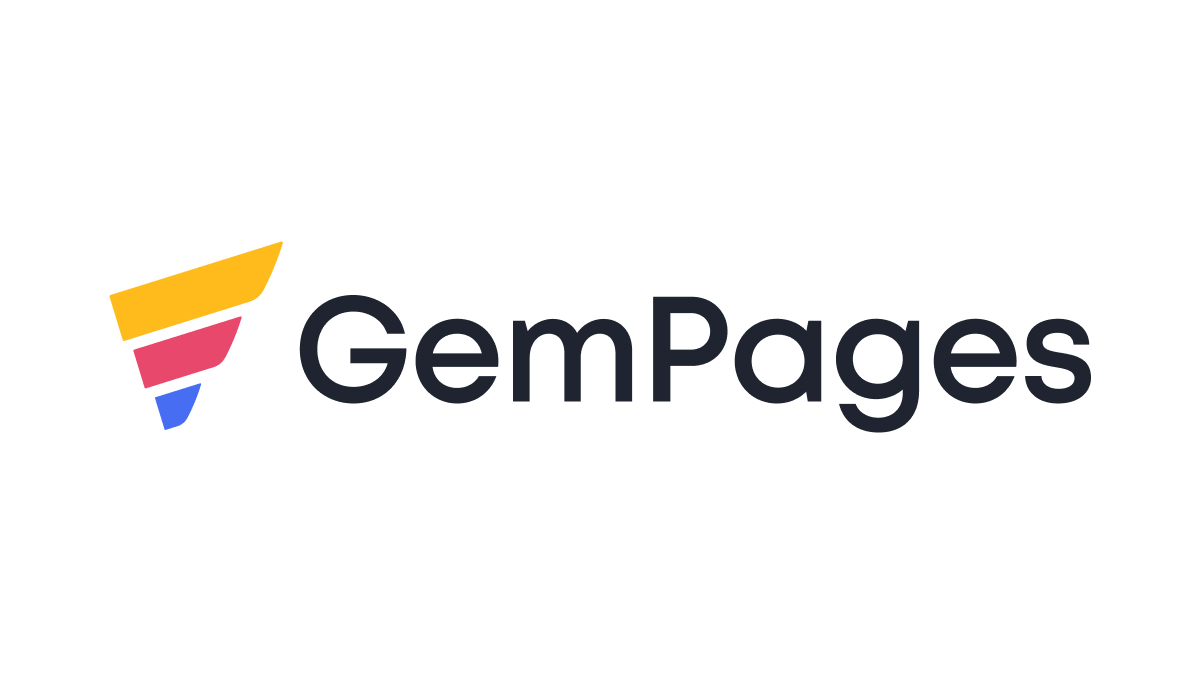
Gempages: Complete Buyer's Guide
AI-powered page builder for Shopify
Gempages is a Shopify-native AI-powered page builder that transforms how ecommerce retailers approach store design through automated content generation and conversion-focused optimization tools.
Market Position & Maturity
Market Standing
Gempages operates within the rapidly expanding AI-driven ecommerce design market, projected to reach $50.98 billion by 2033 with a 24.3% CAGR[40].
Company Maturity
The company demonstrates market maturity through documented customer implementations spanning diverse industries, from large catalog retailers like Gerhardt Studios with 200,000-SKU deployments to performance-focused merchants achieving significant conversion improvements[55][59].
Growth Trajectory
Growth trajectory indicators include expanding customer base across diverse ecommerce segments, from performance optimization cases like IMALENT's reported 600% conversion increase to content strategy implementations like Skin Matter's 105% conversion lift[59].
Industry Recognition
Industry recognition emerges through customer testimonials consistently highlighting 'outstanding customer service' with issue resolution 'within hours rather than days'[53][54].
Strategic Partnerships
Strategic partnerships center on Shopify ecosystem integration rather than broader technology alliances.
Longevity Assessment
Positive indicators include consistent customer satisfaction, documented large-scale implementations, and responsive support infrastructure. However, technical compatibility challenges with themes and recurring integration issues suggest ongoing platform stability concerns[52][54].
Proof of Capabilities
Customer Evidence
Gerhardt Studios successfully deployed Gempages for a 200,000-SKU site, demonstrating the platform's ability to handle enterprise-scale catalog requirements while maintaining performance and usability[55].
Quantified Outcomes
Performance Transformation Cases: Customer evidence includes dramatic improvements, with IMALENT reporting a 600% conversion rate increase and Skin Matter achieving a 105% conversion lift through Gempages optimization tools[59].
Case Study Analysis
Large-Scale Implementation Evidence: Gerhardt Studios successfully deployed Gempages for a 200,000-SKU site, demonstrating the platform's ability to handle enterprise-scale catalog requirements while maintaining performance and usability[55].
Market Validation
Customer adoption spans diverse ecommerce segments, from large catalog operations to performance-focused merchants implementing conversion optimization strategies[55][59].
Competitive Wins
Evidence shows Gempages winning against alternatives through lower entry costs ($29 vs $149) compared to Shogun while providing comparable AI features[50][56].
Reference Customers
Gerhardt Studios with 200,000-SKU deployments[55].
AI Technology
Gempages leverages dual AI architecture combining computer vision and natural language processing to automate ecommerce store design within Shopify's native ecosystem.
Architecture
Technical architecture prioritizes Shopify-native integration over multi-platform compatibility, reducing deployment complexity through pre-built connectors and native API utilization[40].
Primary Competitors
Gempages competes directly with Shopify Magic (free AI tools), Shogun ($149/month enterprise focus), PageFly (basic page building), and Adobe Sensei (enterprise omnichannel)[42][50][51][54][56].
Competitive Advantages
Lower entry cost ($29 vs $149) compared to Shogun while providing comparable AI features creates significant SMB accessibility[50][56]. Superior sales-focused elements including countdown timers and sticky carts versus PageFly address ecommerce-specific requirements[50][56].
Market Positioning
Gempages targets the middle market gap between free basic tools and expensive enterprise solutions, focusing on Shopify-exclusive merchants prioritizing rapid deployment over multi-platform flexibility[50][56].
Win/Loss Scenarios
Gempages wins when customers prioritize Shopify integration depth, budget constraints favor subscription over custom development, and internal design resources are limited but quality control capabilities exist[50][52][55].
Key Features

Pros & Cons
Use Cases
Integrations
Pricing
Featured In Articles
Comprehensive analysis of Store Design for Ecommerce for Ecommerce businesses and online retailers. Expert evaluation of features, pricing, and implementation.
How We Researched This Guide
About This Guide: This comprehensive analysis is based on extensive competitive intelligence and real-world implementation data from leading AI vendors. StayModern updates this guide quarterly to reflect market developments and vendor performance changes.
59+ verified sources per analysis including official documentation, customer reviews, analyst reports, and industry publications.
- • Vendor documentation & whitepapers
- • Customer testimonials & case studies
- • Third-party analyst assessments
- • Industry benchmarking reports
Standardized assessment framework across 8 key dimensions for objective comparison.
- • Technology capabilities & architecture
- • Market position & customer evidence
- • Implementation experience & support
- • Pricing value & competitive position
Research is refreshed every 90 days to capture market changes and new vendor capabilities.
- • New product releases & features
- • Market positioning changes
- • Customer feedback integration
- • Competitive landscape shifts
Every claim is source-linked with direct citations to original materials for verification.
- • Clickable citation links
- • Original source attribution
- • Date stamps for currency
- • Quality score validation
Analysis follows systematic research protocols with consistent evaluation frameworks.
- • Standardized assessment criteria
- • Multi-source verification process
- • Consistent evaluation methodology
- • Quality assurance protocols
Buyer-focused analysis with transparent methodology and factual accuracy commitment.
- • Objective comparative analysis
- • Transparent research methodology
- • Factual accuracy commitment
- • Continuous quality improvement
Quality Commitment: If you find any inaccuracies in our analysis on this page, please contact us at research@staymodern.ai. We're committed to maintaining the highest standards of research integrity and will investigate and correct any issues promptly.